Professional Learning
Online Academy
Learn from our expert instructors and build your knowledge of the Science of Reading.
The Reading League’s Online Academy online classes, known as Knowledge Blocks, offer individuals and small teams the chance to choose their learning paths in evidence-aligned literacy instruction. These interactive, small-group learning sessions occur in a live virtual format, providing a unique opportunity to engage with our science of reading expert instructors and network with other participants.
Questions? Find answers to some of the most Frequently Asked Questions.
-
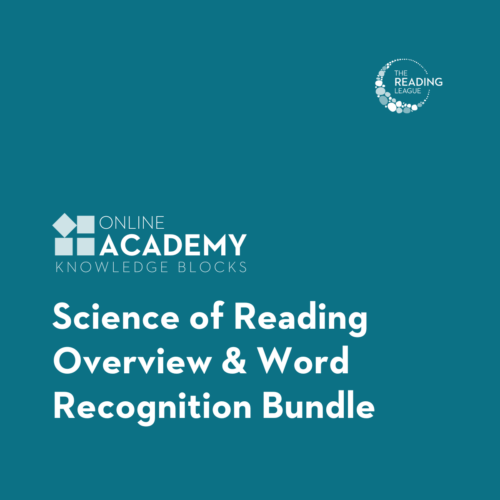
Science of Reading Overview & Word Recognition Bundle
Save $200 with this four session bundle! Perfect for anyone new to the science of reading or for anyone who wants to deepen their understanding of how skilled reading develops.
-
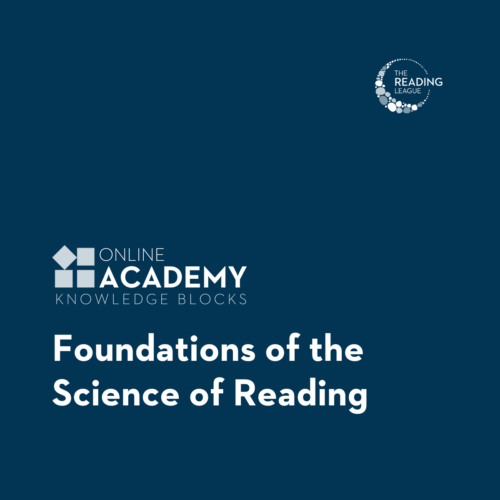
Foundations of the Science of Reading
The Science of Reading embodies over 40 years of research findings from multiple fields of study that shine a light on key fundamental principles of reading instruction. Participants will learn about three “anchors” that have emerged from this research.
-
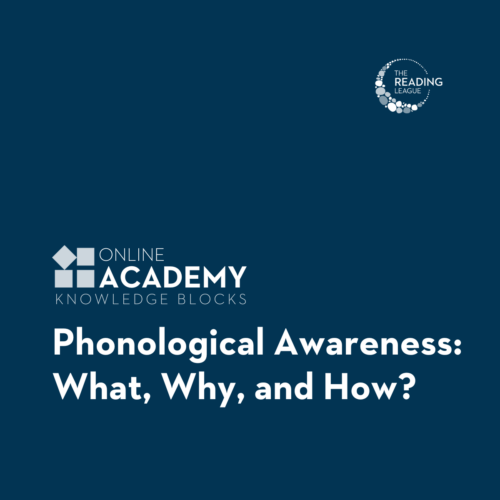
Phonological Awareness: What, Why, and How?
Phonological awareness predicts future reading success. Participants will learn how to teach and assess phonological awareness skills.
-
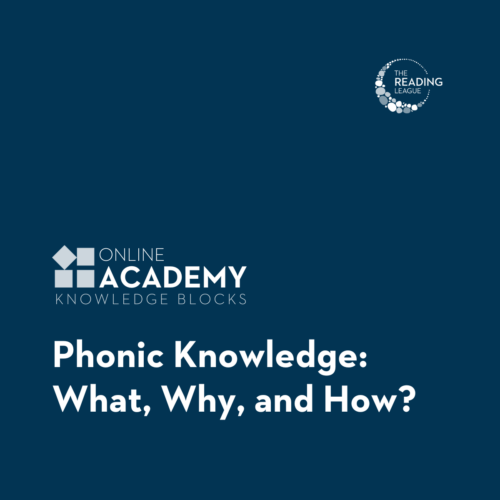
Phonic Knowledge: What, Why, and How?
Students need phonic knowledge to read and spell efficiently. Participants will learn the six major syllable types of English and an assessment tool to plan for instruction.
-
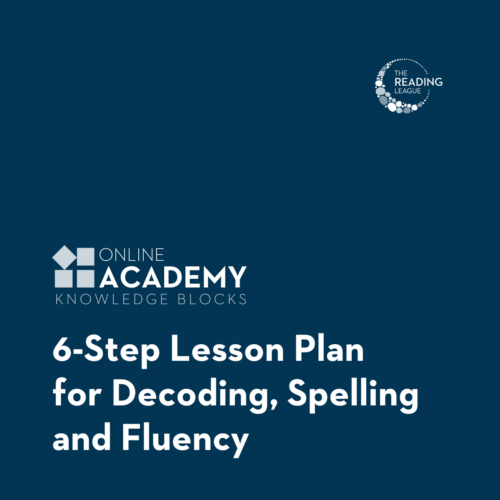
6-Step Lesson Plan for Decoding, Spelling, and Fluency
Participants will learn how to plan and implement engaging, evidence-aligned, 6-Step lessons to teach the phonemic and phonic skills necessary for efficient decoding, spelling, and fluency.
-
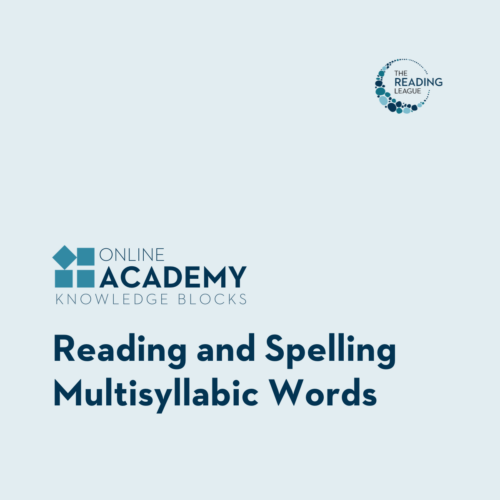
Reading and Spelling Multisyllabic Words
Learn the 6 major syllable types in English and instructional routines for teaching students to read and spell multisyllabic words.
-
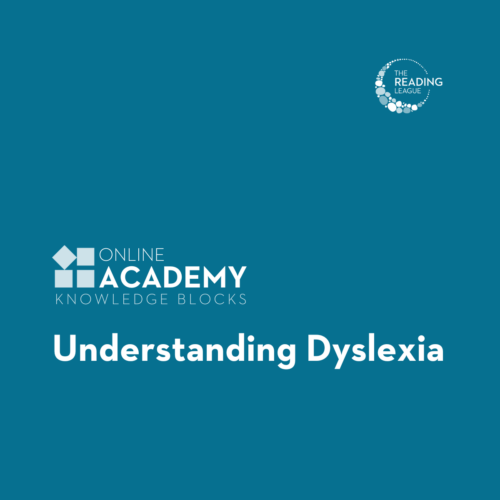
Understanding Dyslexia
There are many misconceptions about what dyslexia is and is not. Participants will learn critical indicators of dyslexia and the legal nuances of a dyslexia diagnosis in schools.
-
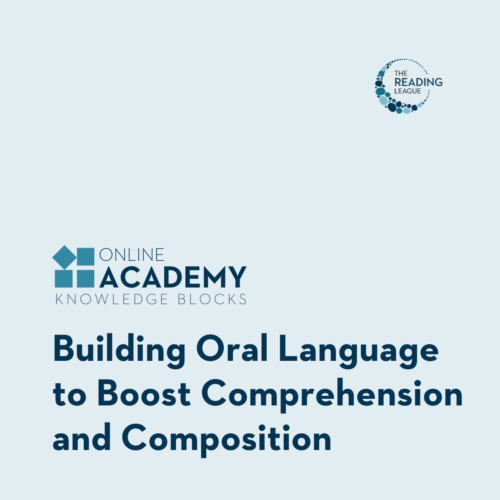
Building Oral Language to Boost Comprehension & Composition
Oral language is the foundation for future reading and writing tasks. Participants will learn how to integrate opportunities for oral language development in the classroom.
-
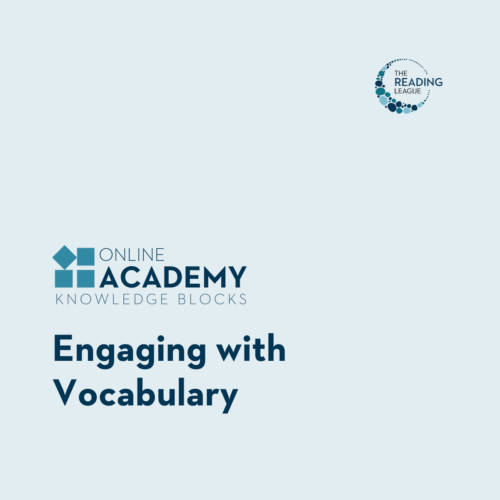
Engaging with Vocabulary
Participants will learn how to decide which vocabulary words to teach and a sample routine for explicit instruction.
-
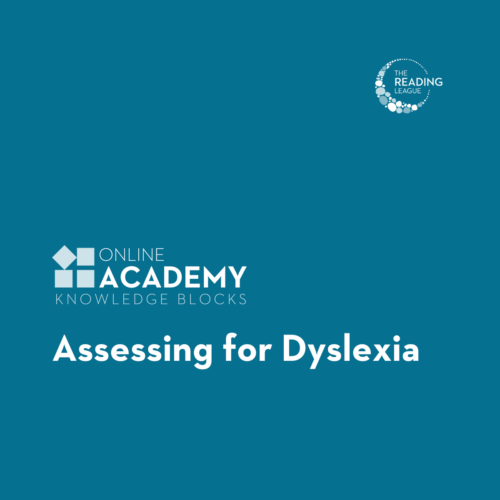
Assessing for Dyslexia
When assessing for dyslexia, there are specific test measures and key interpretations needed to render a dyslexia classification. Participants will examine case study data and discuss recommendations for interventions and accommodations.
-
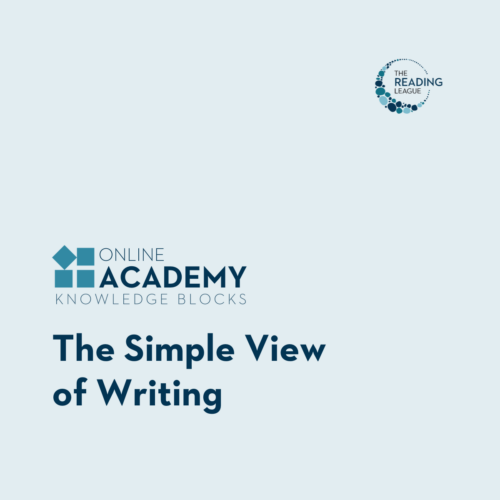
The Simple View of Writing
Two key factors contribute to skilled written expression. Participants will learn the subcomponents of these factors, with a particular emphasis on the importance of handwriting fluency.
-
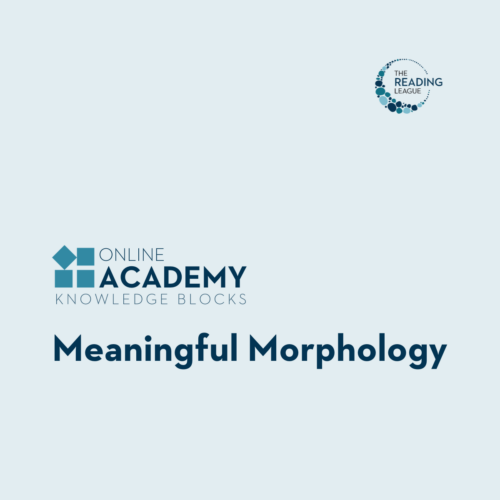
Meaningful Morphology
Knowledge of morphology provides insight into both the meaning and spelling of words. Participants will deepen their knowledge of morphology while also learning key features of morphological instruction in the classroom.
-
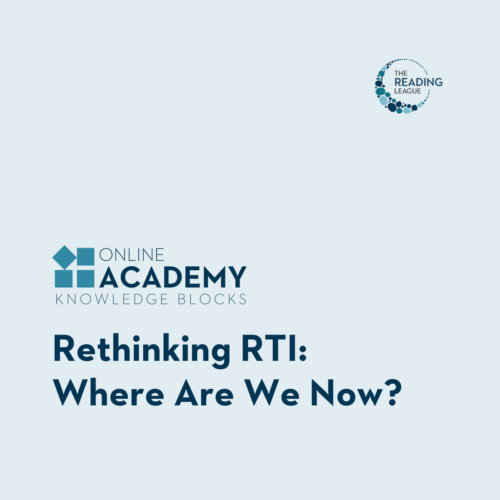
Rethinking RTI: Where Are We Now?
Participants will learn the intent behind Response to Intervention (RTI), what has actually happened in schools, and what this means in today’s unique contexts.
If you have any questions about Online Academy, please reach out to our team at ola@thereadingleague.org.